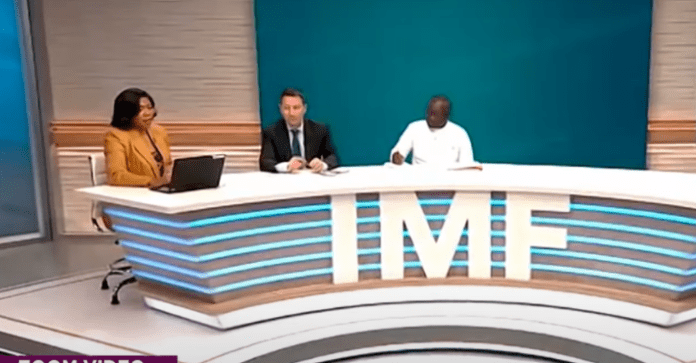IMF says Ghana still in ‘debt distress’ despite ongoing debt restructuring programmes
The International Monetary Fund (IMF) has disclosed in its latest Staff Report on Ghana, titled “2023 Article IV Consultation,” that Ghana remains entrenched in debt distress, with its current fiscal position deemed unsustainable. The IMF emphasized that pending the completion of debt restructuring efforts, Ghana’s debt continues to breach standard thresholds, signaling a persistent and significant challenge.
Highlighting the ongoing debt restructuring process, the IMF reiterated concerns over the substantial breaches in Debt Sustainability Analysis (DSA) thresholds, underscoring Ghana’s precarious financial standing. The report affirms that despite efforts, Ghana’s debt remains unsustainable, echoing findings from previous assessments in May 2023.
In response to escalating debt levels, Ghana initiated a debt restructuring program in 2023, a prerequisite for securing IMF support. The comprehensive restructuring strategy aimed to mitigate the risk of debt distress, particularly within the IMF-World Bank Debt Sustainability Framework for low-income countries (LIC-DSF).
External debt service relief was targeted during the 2023-2026 period to address the external financing gap, while domestic debt restructuring sought to alleviate domestic financing pressures significantly.
Ghana’s Debt Sustainability Analysis
The IMF’s analysis underscores the macroeconomic framework’s role in assessing debt sustainability. The staff baseline scenario, aligned with the Fund-supported program, aims to restore macroeconomic stability and debt sustainability over the medium term.
The report attributes Ghana’s escalating debt to external shocks, including the COVID-19 pandemic, global financial market tightening, and the conflict in Ukraine. These factors, compounded by pre-existing fiscal vulnerabilities, led to a significant rise in public and external debt.
By the end of 2022, Ghana’s public debt had surged from 63.0% to 93.3% of GDP, while domestic debt reached 50% of GDP, with public external debt standing at 43.3% of GDP.
Debt Management Strategies
The IMF acknowledged Ghana’s efforts in implementing a comprehensive debt restructuring plan aimed at achieving debt sustainability and mitigating the risk of distress. Key objectives include reducing the present value of total debt-to-GDP and external debt service-to-revenue ratios to 55% and 18%, respectively, by 2028.
The report also emphasized the need for enhanced surveillance by the Ministry of Finance to monitor debt issuance by State-Owned Enterprises and prevent over-collateralization of debt.
In essence, Ghana’s debt challenges remain a focal point, necessitating sustained efforts and vigilant oversight to navigate the path toward financial stability and sustainability.









